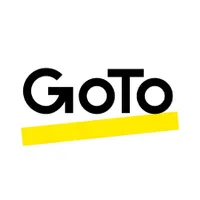Six things to consider when buying your next Remote IT Support tool
What to know when choosing remote IT support for your organization

Organizations are increasingly turning to remote IT support. Driving this trend is first the move towards remote workers, who need steady access to help for their tech issues. The other trend are the companies that willingly outsource as needed to save money, and also to skip the hassle of building their own internal IT workforce.
Therefore, if your organization is shopping for a new remote IT support vendor, then here is a list of the top things to consider when purchasing your next remote IT support tool.
Remote IT Support Software
GoTo Resolve offers a solution for your remote support, management and ticketing needs. Techradar readers can try GoTo Resolve free for 14 days.
Easy to use
IT support is designed to be helpful and easy to use, and not an additional source of frustration. Pay attention to how the platform performs, both for the end users, as well as for the IT staff. Furthermore, consider how the remote IT support integrates into the workflow, and the other programs that will need to be supported.
Another issue is if there is software that will need an installation onto the end user’s machine in order for the process to work. Some organizations may want to custom brand the logo so it looks more professional and integrated, rather than leaving it alone and going with the logo of the software platform used.
Security
Finding a secure platform is another challenge. However, it is critically important as a remote IT solution has complete access to your entire network with all of its devices. Consider that a security network breach can not only compromise the network, but many client’s data. Be sure to consider the remote IT support vendor’s reputation, if they have a history of security breaches, and if so what was done about it.
You should generally go beyond the obvious as every platform will indicate it is secure on its website, as after all it uses login credentials with a password. However, go beyond that to find a platform that uses industry best practices, such as passwords of sufficient complexity, that expire and need to be changed over time. Furthermore, there should be two factor authentication via SMS, email or a security token. Then take it a step further, and go through industry forums, contact current customers, and do some internet searches to get the low down.
You should also look for end-to-end high level encryption of the connections. Also, look for timely, and automated patches of the remote IT support software as security issues are identified. Furthermore, per user permissions to control access is another useful feature. Finally, consider the industry, and ensure compliance with regulations, such as HIPAA for the healthcare sector, or the EU General Data Protection Regulation.
Sign up to the TechRadar Pro newsletter to get all the top news, opinion, features and guidance your business needs to succeed!
Supported platforms
First you need to take a careful stock of the devices in use at your organization, with how many devices, and in what quantity. This should include not only the desktop computers, but also the mobile devices, including the smartphones and any tablets on Android and iOS.
Also pay attention to the OS versions, as not every platform will support a legacy machine, such as that Windows 7 machine still in use to run that isolated piece of hardware that has no Windows 10 driver. Also, consider if any Linux devices are in use, or the increasingly popular Chromebooks. With this done, you can then choose a platform that can support the list of devices in use at your organization.
Licensing
Another issue also centers around the number of devices. Pay attention to the number of devices per user, as just about everyone uses more than one device. Some remote IT support vendors license by the user, while others will license by each device- which can end up with significantly disparate numbers, and subsequent costs.
Also pay attention if only company owned and supplied devices are to be supported. Many organizations support the BYOD (bring your own device) shift where workers end up using their own smartphones, and simply download the needed apps for their productivity workflow.
Customer support
There are multiple aspects to consider in terms of customer support. The first is the hours of operation, as if your organization is 24/7/365, it will need support at all times, and not just during weekday business hours. Also consider the hours of operation if your organization is operating in a different time zone than the remote IT support vendor.
Also look at the details of the options to receive the support, with more options preferred. Not all companies offer live phone support, but that is a great option for complex problems. In other cases, an email or portal is preferred as a marked up screenshot can detail an issue. Some younger users often prefer live chat, while older workers may not. Finally, email should be an option if the issue is not time sensitive and if asynchronous communication is a reasonable route to save time.
Costs
Most organizations turn to a remote IT support vendor, rather than doing it only inhouse, for the cost savings, especially if 24/7 coverage is needed which quickly turns into a difficult challenge to staff. However, needs to be carefully considered, and priced so that we end up with a cost savings in the end.
Some vendors tend to ‘ransom’ what should be more standard features to the higher tiers to run up the cost. Another strategy is to leave out some essentials, such as phone support, and make that an à la carte add on feature.
Pricing can also get confusing, and not by accident make it difficult to compare easily against other vendors. By way of example, some price by the number of users, others by the number of supported devices, and yet others, just to muddy the waters further, give a price of the number of concurrent sessions.
Conclusion
Choosing an appropriate remote IT support vendor can easily become a task in itself. By knowing what factors to look for, and by breaking it down into pieces, this job can be accomplished with efficiency.
Jonas P. DeMuro is a freelance reviewer covering wireless networking hardware.
